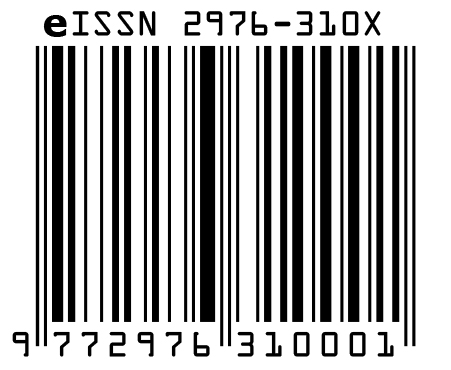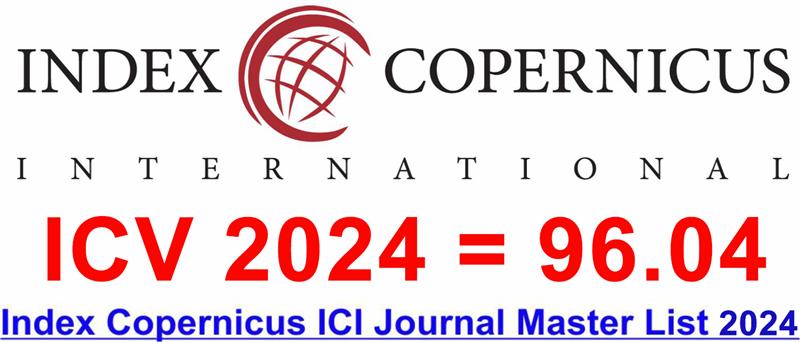Challenges and Recommendations for the Implementation of Outcome-Based Education: A Systematic Review
DOI:
https://doi.org/10.60072/ijeissah.2023.v2i01.003Abstract
Enhancing the quality of education through focusing on the outcomes of the educational process is an increasingly highlighted area in the field of education. Outcome-based education (OBE) has been considered as the best approach to enhance the quality of education, and it is implementing inserted of traditional teacher-centered content-based education approach in most educational reforms. Also, there are research findings about this change in the literature. It is important to explore challenges and recommendations for OBE implementation especially for ‘those who are struggling with the same challenges’ and ‘who are planning for the same reforms.’ The purpose of this study is to discuss challenges and recommendations for OBE implementation in previous literature. The ‘conceptual content analyses’ on phenomenological and case study-based recent research publications were conducted. PRISMA article selection process was employed to identify suitable research papers. Twelve research papers published in the last ten years fulfilled all inclusion criteria. These research papers were selected from ‘Google Scholar’, Emerald Insight’ and ‘SAGE’ databases. Findings in both, challenges and recommendations were compiled under four categories. The first three categories: ‘defining intended learning outcomes’, ‘deciding teaching-learning activities’, and ‘student assessment’ were derived from the theory of constructive alignment. All other challenges and recommendations were discussed in the last category, ‘general’. However, there are more improvements with the OBE. However, it should not be considered as a magic solution for all issues and should be implemented carefully because there are no chances to learn through mistakes in educational reforms.
Keywords:
Outcome Based Education, Intended Learning Outcomes, Teaching Learning Activities, Student Assessment, Constructive AlignmentReferences
Akir, O., Eng, T. H., & Malie, S. (2012). Teaching and Learning Enhancement Through Outcome-Based Education Structure and Technology e-Learning Support. Procedia - Social and Behavioral Sciences, 62, 87–92. https://doi.org/10.1016/j.sbspro.2012.09.015
Asim, H. M., Vaz, A., Ahmed, A., & Sadiq, S. (2021). A Review on Outcome Based Education and Factors That Impact Student Learning Outcomes in Tertiary Education System. International Education Studies, 14(2), 1. https://doi.org/10.5539/ies.v14n2p1
Biggs, J. (1996). Enhancing teaching through constructive alignment. Higher Education, 32(3), 347–364. https://doi.org/10.1007/bf00138871
Collins, K. J. (2015). Outcomes-based education and deep learning in first year social work in South Africa: Two case examples. International Social Work, 58(4), 495-507. https://doi.org/10.1177/0020872813503856
Damit, M. A. A., Omar, M. K., & Puad, M. H. M. (2021). Issues and Challenges of Outcome-based Education (OBE) Implementation among Malaysian Vocational College Teachers. International Journal of Academic Research in Business and Social Sciences, 11(3), 197-211. http://dx.doi.org/10.6007/IJARBSS/v11-i3/8624
Ganesh, E. N., Dheenadhayalan, B., & Nath, S. S. Study of Implementing Learning based Outcome Education in Electronics and Communication Engineering in Indian Universities. International Journal of Advance Research and Innovative Ideas in Education, 2(5), 751–758.
Gunarathne, N., Senaratne, S., & Senanayake, S. (2020). Outcome-based education in accounting. Journal of Economic and Administrative Sciences, 36(1), 16–37. https://doi.org/10.1108/jeas-08-2018-0093
Hsieh, H. F., & Shannon, S. E. (2005). Three approaches to qualitative content analysis. Qualitative health research, 15(9), 1277-1288. https://doi.org/10.1177/1049732305276687
Kaliannan, M., & Chandran, S. D. (2012). Empowering Students through Outcome-Based Education (OBE). Research in Education, 87(1), 50–63. https://doi.org/10.7227/rie.87.1.4
Killen, R. (2000). Outcomes-based education: Principles and possibilities. Unpublished manuscript, University of Newcastle, faculty of education, 1-24.
Kim, H., Sefcik, J. S., & Bradway, C. (2017). Characteristics of Qualitative Descriptive Studies: A Systematic Review. Research in Nursing & Health, 40(1), 23–42. https://doi.org/10.1002/nur.21768
Lubna A. M & Harison M. S. (2015). EST Reading Curriculum & Instruction: An Alignment Analysis.Advances in Language and Literary Studies 6 (1):120-128. http://www.journals.aiac.org.au/index.php/alls/article/view/631/554
Lubna A. M, Harison M. S & Murad A.S. (2016). The Yemeni EST Reading Curriculum at Secondary School Level: A Level of Cognitive Demands. The 9th Malaysia International Conference on Languages, Literatures, and Cultures 16 – 18 August 2016, Penang, Malaysia
Mohammed, L. A., Aljaberi, M. A., Anmary, A. S., & Abdulkhaleq, M. (2022, September). Analysing english for science and technology reading texts using flesch reading ease online formula: The Preparation for Academic Reading. In International Conference on Emerging Technologies and Intelligent Systems (pp. 546-561). Cham: Springer International Publishing. https://doi.org/10.1007/978-3-031-20429-6_50
Mohammed, L. A., Sidek, H. M. (2016). EST Secondary School Reading Curriculum: The Preparation for Reading at Tertiary Level. The Asian Journal of English Language & Pedagogy. (4): 40-49. file:///C:/Users/User/Downloads/ad62e6c5-2676-463b-922c-5debcd0f94f1.pdf.
Maleki, M. N. (2021). Towards Outcome-Based Education: Challenges in the Context of Afghanistan. International Journal of Education & Language Studies, 1(1). https://doi.org/10.22034/ijels.2021.279086.1007
Oreta, A. W. C., & ASEP, D. E. F. (2014). Outcomes-Based Teaching and Learning Strategies for the Structural Engineering Professor. In International Conference on SPACE.
Premalatha, K. (2019). Course and Program Outcomes Assessment Methods in Outcome-Based Education: A Review. Journal of Education, 199(3), 111–127. https://doi.org/10.1177/0022057419854351
Rajaee, N., Junaidi, E., Taib, S. N. L., Salleh, S. F., & Munot, M. (2013). Issues and Challenges in Implementing Outcome Based Education in Engineering Education. International Journal for Innovation Education and Research. https://doi.org/10.31686/ijier.vol1.iss4.121
Ram, M. P., & Ajay, K. K. (2020). Geoscience curriculum: Approach through learning taxonomy and outcome based education. Higher Education for the Future, 7(1), 22-44. https://doi.org/10.1177/2347631119886403
Rao, N. J. (2020). Outcome-based Education: An Outline. Higher Education for the Future, 7(1), 5–21. https://doi.org/10.1177/2347631119886418
Sarason, S. B. (1990). The Predictable Failure of Educational Reform: Can We Change Course before It's Too Late? The Jossey-Bass Education Series and the Jossey-Bass Social and Behavioral Science Series.
Senaratne, S., & Gunarathne, A. N. (2019). Outcome-based education (OBE) in accounting in Sri Lanka: Insights for teacher education. Teaching and Teacher Education: South Asian Perspectives, 23-47. https://link.springer.com/chapter/10.1007/978-3-030-26879-4_2
Spady, W. G. (1994). Outcome-based Education. American Association of School Administrators. https://eric.ed.gov/?id=ED380910
Syeed, M. M., Shihavuddin, A. S. M., Uddin, M. F., Hasan, M., & Khan, R. H. (2022). Outcome based education (OBE): Defining the process and practice for engineering education. IEEE Access, 10, 119170-119192. https://doi.org/10.1109/access.2022.3219477
Tam, M. (2014). Outcomes-based approach to quality assessment and curriculum improvement in higher education. Quality Assurance in Education, 22(2), 158–168. https://doi.org/10.1108/qae-09-2011-0059
Tyler, R. W. (2013). Basic principles of curriculum and instruction. University of Chicago press.
United Nations. (n.d.). Retrieved December 23, 2022, from Welcome to the United Nations. https://www.un.org/
Wickramasinghe, V. (2018). Higher education in state universities in Sri Lanka: Review of higher education since colonial past through international funding for development. International Journal of Educational Management, 32(3), 463-478. https://doi.org/10.1108/ijem-01-2017-0028
Yu, F. L. T. (2016). Outcomes-based education: A subjectivist critique. International Journal of Educational Reform, 25(3), 319-333. https://doi.org/10.1177/105678791602500306
























